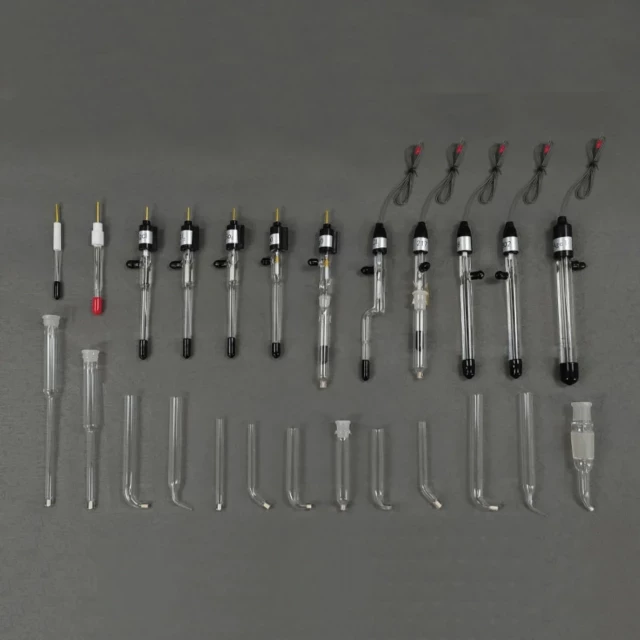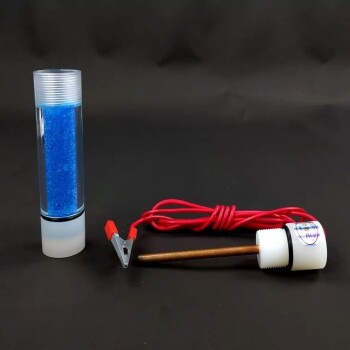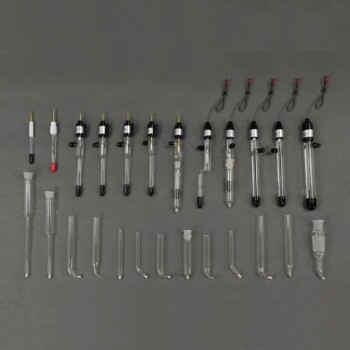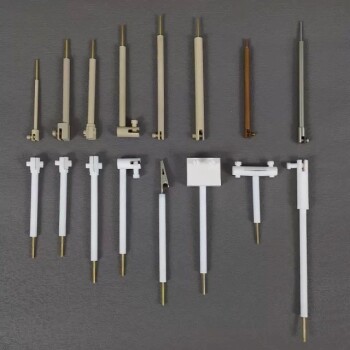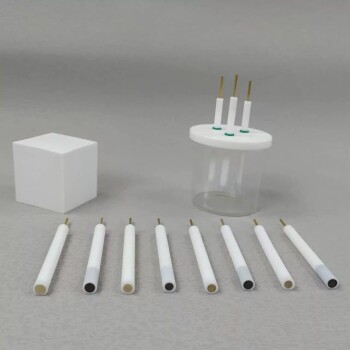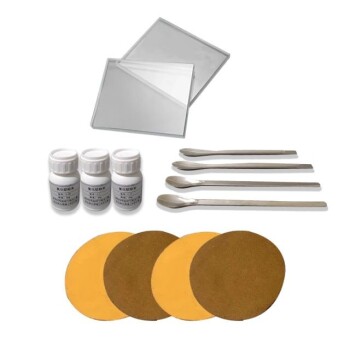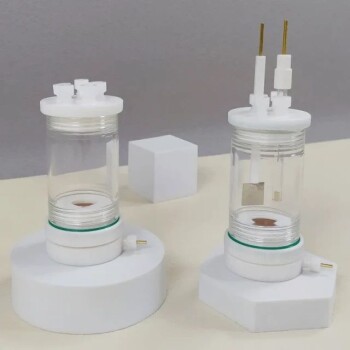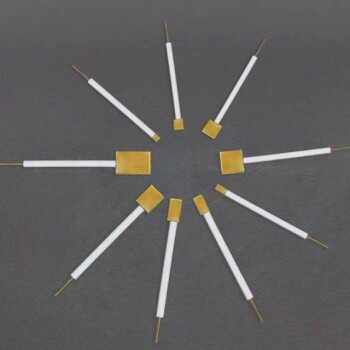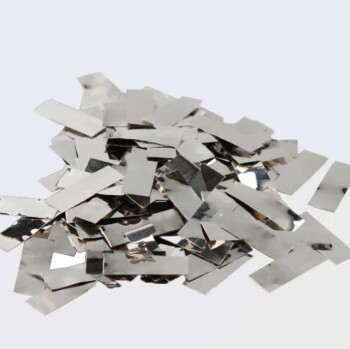Introduction
When it comes to measuring the electrical potential of a solution accurately, a reference electrode is an essential tool in the laboratory. It provides a stable and consistent reference point for other electrodes to measure against, ensuring accurate and reliable results. There are various types of reference electrodes, each suited to different applications and environments. Choosing the right reference electrode for your experiment is crucial to the success of your research. In this blog post, we will explore the different types of reference electrodes available and the factors to consider when selecting the right one for your application.
Table of Contents
Purpose of a Reference Electrode
A reference electrode is a critical component of many electrochemical measurements used in laboratory equipment. The purpose of a reference electrode is to provide a stable reference potential against which the potential of the working electrode can be measured.
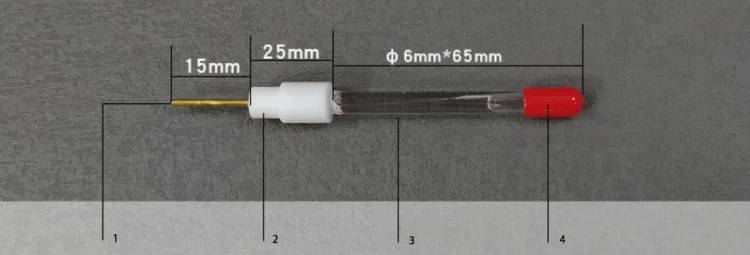
Importance of Choosing the Right Reference Electrode
It is essential to choose the right reference electrode for your application to ensure accurate and reliable results. Several factors need to be considered when selecting a reference electrode, including the type of electrochemical reaction, the solvent used, temperature, and the range of potentials being measured.
Function of a Reference Electrode
The reference electrode completes the electrical circuit necessary for an electrochemical measurement by providing the second electrode of a complete electrode cell whose total potential is measured. The reference electrode achieves this by providing contact with the sample through its liquid junction.
Attributes of a Good Reference Electrode
For a reference electrode to be useful, it must provide both a stable and reproducible potential to which the indicating electrode potential can be compared. The reference electrode should not interfere with the electrochemical reaction being studied. It should be compatible with the chemical composition of the sample and provide a fast response time to ensure analytical process efficiency.
Types of Reference Electrodes
Common types of reference electrodes include silver/silver chloride, calomel, and saturated calomel electrodes. Silver/silver chloride electrodes are commonly used in aqueous solutions, while calomel and saturated calomel electrodes are preferred in non-aqueous solutions.
Junction Potential
The reference electrode's junction potential is another important consideration, as it can cause errors in potential measurements. It is important to take into account the specific requirements of your experiment when selecting a reference electrode to ensure that you choose the most appropriate one for your needs.
In conclusion, choosing the right reference electrode for your electrochemical application is crucial to obtain accurate and reliable results. Proper consideration of the specific requirements of your experiment will ensure that you choose the most appropriate reference electrode for your needs.
Features and Considerations for Choosing a Reference Electrode
When it comes to electrochemical measurements, selecting the right reference electrode is crucial. A reference electrode acts as a standard against which the potential of other electrodes is measured. Choosing the wrong reference electrode can lead to inaccurate results and poor reproducibility. There are several factors to consider when selecting a reference electrode, such as the type of electrolyte, temperature, electrode potential range, and the chemical compatibility of the electrode with the sample.
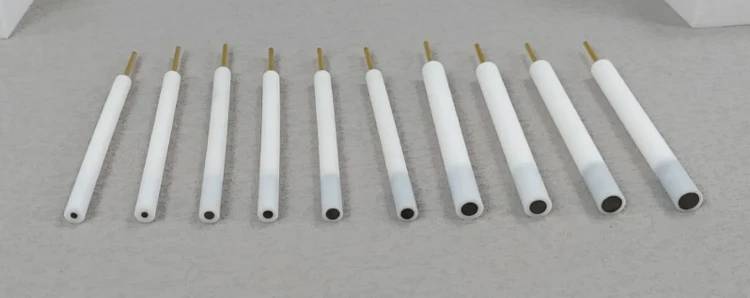
Type of electrolyte
Different types of reference electrodes, such as Ag/AgCl, calomel, and saturated calomel electrodes, have different features and applications. For example, Ag/AgCl electrodes are commonly used in aqueous solutions, while calomel electrodes are preferred for non-aqueous solutions.
Electrode potential range
It is important to consider the electrode potential range required for your application. The potential range of a reference electrode should be wide enough to cover the potential range of the working electrode, but not so wide that it interferes with the measurement.
Chemical compatibility
The chemical compatibility of the electrode with the sample is also important. The electrode should not react with the sample or any of its components, as this can lead to inaccurate results. The compatibility can be influenced by the electrode material, the type of electrolyte, and the concentration of the electrolyte.
Stability and durability
It is important to consider the stability and durability of the electrode, as some reference electrodes require frequent maintenance. The electrode should be stable over the course of the experiment, and should not drift or degrade over time. Additionally, the electrode should be durable enough to withstand repeated use and cleaning.
Filling solutions
Some reference electrodes require filling solutions, while others do not. The filling solution can affect the electrode potential and the chemical compatibility of the electrode, so it is important to choose the right filling solution for your application.
In conclusion, selecting the right reference electrode for your application requires careful consideration of the specific experimental conditions and the properties of the electrode. By taking these factors into account, you can ensure that your electrochemical measurements are accurate and reliable.
Options for Reference Electrodes
Reference electrodes are crucial for accurate and reliable electrochemical measurements in research and industrial settings. There are several options for reference electrodes, and the choice of electrode depends on the specific application requirements. In this section, we will discuss the most common reference electrodes and their advantages and limitations.
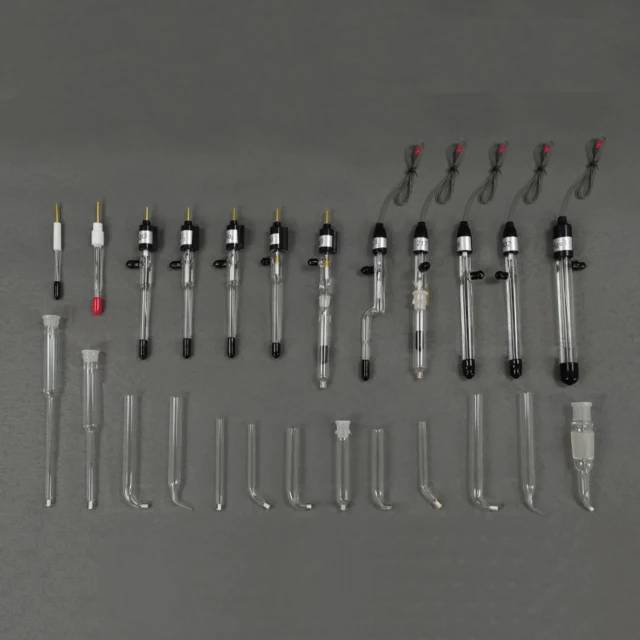
Standard Hydrogen Electrode (SHE)
The standard hydrogen electrode (SHE) is the most accurate reference electrode, but it is not practical for routine use due to its high cost and complexity. The SHE consists of a platinized platinum electrode in contact with a solution of hydrogen ions at unit activity and one atmosphere of pressure. The potential of the SHE is defined as zero volts at all temperatures.
Silver/Silver Chloride (Ag/AgCl) Electrode
The silver/silver chloride (Ag/AgCl) electrode is widely used and offers good stability and reproducibility. It consists of a silver wire coated with silver chloride, which is immersed in a solution containing chloride ions. The potential of the Ag/AgCl electrode is stable and can be easily measured with respect to the SHE. However, it can be affected by light and temperature changes.
Calomel Electrode
The calomel electrode is inexpensive and easy to use, but it contains toxic mercury and has limited accuracy and shelf life. It consists of a mercury pool in contact with a paste of mercury(I) chloride. The potential of the calomel electrode can be measured with respect to the SHE.
Saturated Calomel Electrode (SCE)
The saturated calomel electrode (SCE) is a popular choice for general electrochemical measurements, as it is relatively inexpensive, easy to use, and has a long shelf life. The SCE consists of a mercury pool in contact with a paste of mercury(I) chloride and a solution of potassium chloride. The potential of the SCE is stable and can be easily measured with respect to the SHE.
In summary, the choice of reference electrode depends on the specific application requirements. The SHE is the most accurate reference electrode, but it is not practical for routine use. The Ag/AgCl electrode is widely used and offers good stability and reproducibility, but it can be affected by light and temperature changes. The calomel electrode is inexpensive and easy to use, but it contains toxic mercury and has limited accuracy and shelf life. The SCE is a popular choice for general electrochemical measurements, as it is relatively inexpensive, easy to use, and has a long shelf life.
Conclusion
Choosing the right reference electrode for your application is crucial to obtain accurate and reliable results. Consider the features and options available to ensure the electrode is compatible with your sample and measurement method. Aqueous reference electrodes are suitable for most applications, while non-aqueous reference electrodes are needed for non-aqueous samples. The Ag/AgCl reference electrode is a widely used and reliable option. Additionally, the auxiliary electrode is an important component to complete the measurement circuit. Always follow the manufacturer's instructions for handling and maintenance to ensure optimal performance and longevity of your reference electrode.
Related Products
- Copper Sulfate Reference Electrode for Laboratory Use
- Reference Electrode Calomel Silver Chloride Mercury Sulfate for Laboratory Use
- Electrode Fixture for Electrochemical Experiments
- Metal Disc Electrode Electrochemical Electrode
- Electrode Polishing Material for Electrochemical Experiments
Related Articles
- Electrolytes and Electrochemical Electrodes
- Understanding Saturated Calomel Reference Electrodes: Composition, Uses, and Considerations
- Reference Electrodes: Calomel, Silver Chloride, and Mercury Sulfate - A Comprehensive Guide
- A Comprehensive Guide to Reference Electrodes
- How to Make Your Own Ag/AgCl Reference Electrode for Electrochemical Experiments
